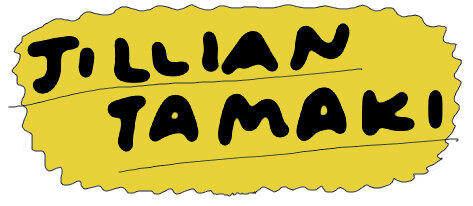LETTER TO MENTEES. 2019.
EDIT 2020: I sent this letter to all applicants to my 2019 mentorship project. Including this here because it contains some cartooning stuff and self-education resources.
-Every single project presented was worth pursuing. There wasn't a single one where I was like, "oof, yikes, no." Make that book/zine/webcomic! Please, please, please don't take not getting this as any sort of rejection or failure. I could have taken on literally DOZENS of people. Picking only 2 was excruciating.
- MANY OF YOU DON'T NEED MY HELP! Seriously. You are well on your way, doing excellent work. All I could provide is "yup, you're on the right track! Keep on going!"
-I was astounded by the quality of work. I was so excited to see people from all ages (15-50+!) and walks of life pursuing comics: neuroscientists, IT pros, service industry workers, funeral directors, teachers. The thought of it honest-to-god gives me tingles. This is what comics needs.
-A recurring theme was: "I've been doing short comics but now I want to do long ones." Yup, longer ones are much harder :-( I think the thing to remember is that it takes a really long time to figure out the best way of planning a long work. I'm still figuring it out myself! Some of my peers' processes: scripting the whole thing first, "writing" while thumbnailing (conceiving of image and text together), making smaller things and collecting them, or even jumping straight to final art and improvising the story. If your current method isn't working, maybe switch it up.
-Many were making biographical and non-fiction work. Something I saw a lot was a LOT of text, in balloons or free-floating, with very little adjacent imagery. This is a stylistic preference, of course, but I'd ask you to pick apart some of that info and show it through visual narrative. It then moves from illustration to comics.
-Similarly, many comic layouts needed fewer balloons/less dialogue per panel. My rule of thumb is there should generally be one "emotional beat" per panel. I want my characters to act.
-Some may want to consider lowering the stakes of your project. If you're new to comics, jumping into a graphic novel is going to be daunting. Consider a short story, zine, or webcomic series. You will learn a ton and gain confidence.
-Many were looking to gain a bit more of a toehold in the industry or become a working professional. I always hedge a lil on this question because it can feel rather pointless for someone who came up in a different time to answer questions about the industry today. All I can offer is: keep on making new and better stuff, try to be aware of what's happening in the industry but don't contort yourself to fit trends, try to make friends online and IRL to support and grow with you, go to relevant industry shows, get comfortable showing your work, post online, send your work to publishers, don’t be afraid to change course, or re-evaluate.
-Learn how to digitize (scan, adjust levels, colour correct, etc) your work. It will instantly make your work look 1000% better.
-Consider continuing education and courses, particularly if your drawing is the weak link or too on-trend. A silkscreening course I took at 26 changed my life. I know this isn't an option for everyone.
-Do not feel bad about having a day job. It's also OK to just make art for yourself and not pursue it as a profession.
-Edit your website and keep it up to date.
-Remember that a fundamental part of the book-making process is struggle, frustration, hitting walls and scrambling to find a new route through. At least it is for me :-))))))
Books I've found useful in self-education or teaching others
-Comics and Sequential Art (great place to start): Will Eisner
-Drawing Words and Writing Pictures: Jessica Abel & Matt Madden (lots of good technical info)
-The Natural Way to Draw: Nicolaides
-Colour and Light: James Guerny (for ppl who want to paint)
-A Guide to Drawing: Daniel M. Mendelowitz
-Cartooning Philosophy and Practice: Ivan Brunetti
-What It Is, Syllabus: Lynda Barry
-Watcha Mean, What's a Zine?: Mark Todd and Esther Pearl Wilson
-Bird by Bird: Anne Lamott (especially for those looking to expand to longer narratives)
-The Art of the Memoir: Mary Karr
(I know this list is very limited, please let me know if you have any suggestions by non-white authors.)
